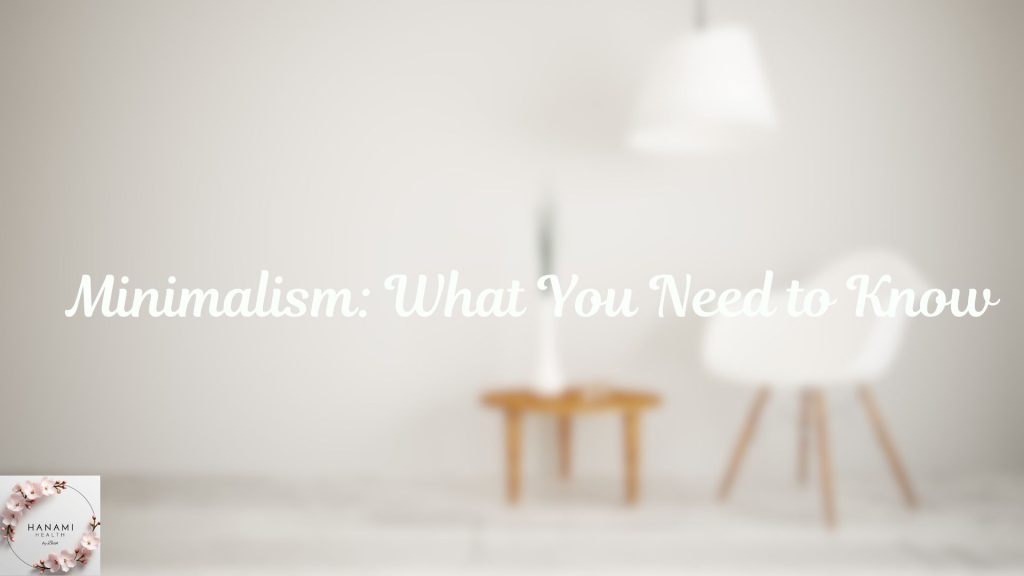
What is Minimalism?
Minimalism, by definition, means owning less and possessing only items that add value to your life. The concept of minimalism helps individuals to eliminate unnecessary possessions from their lives to make room for things that truly matter.
“We focus on making room for more – time, peace, creativity, experiences, contentment, freedom.”
– The Minimalists
But I got minimalism all wrong!
How I Discovered Minimalism?
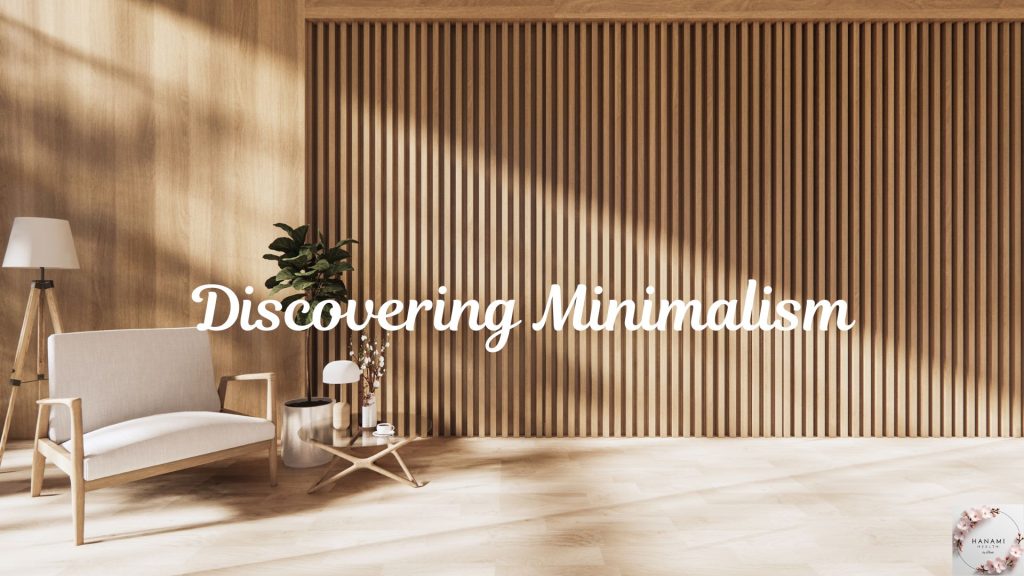
I discovered minimalism in 2021 through various Youtube channels. I was immediately drawn to the calm, clean, and aesthetically minimalist spaces shown. Perhaps, I found them appealing because my own life was quite chaotic at that time.
At first, I watched these videos purely for entertainment. Gradually, their message began to take root in my thoughts. I found myself craving a simple and minimalist living space with beige and white color schemes, airy linen curtains, and lots of plants.
The Minimalist Lifestyle – How I Started
On one hand, I wanted to immediately start decluttering; on the other, I felt the urge to buy new furniture that better fit the minimalist aesthetic. Although I already had all the furniture that I wanted and needed — a dark brown study table, a cozy bed, a yellow-brown three-door almirah, and a dark brown dressing table — I felt they clashed with the minimalist ideal and made me feel out of place.
However, the conflict between my desire to replace furniture and my commitment to minimalism signaled the beginning of my journey to minimalism.
The First Steps Towards Minimalism – Decluttering & Living with Less
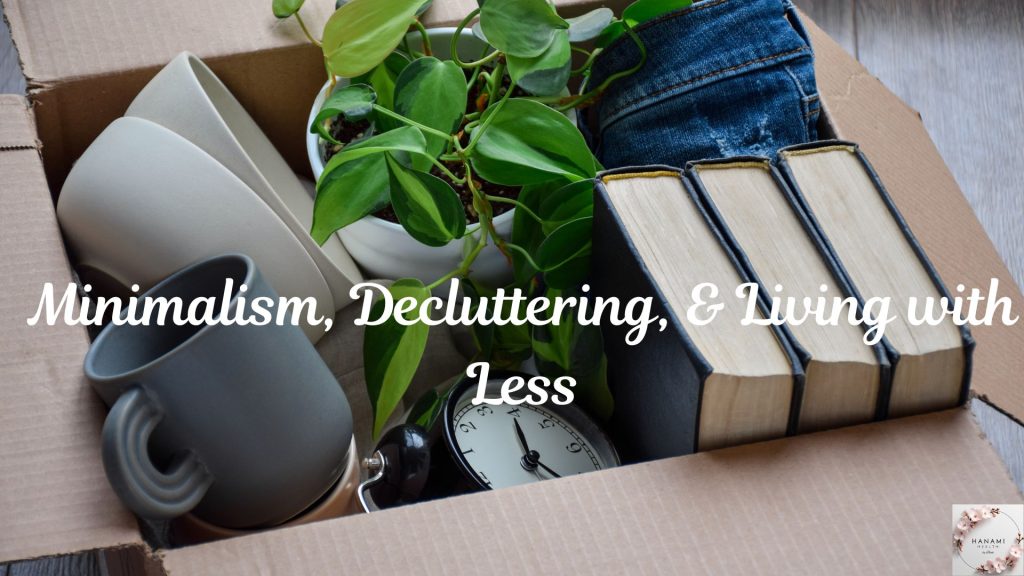
During the initial phase, I followed all the rules of minimalism. This included:
- Decluttering all the clothes I didn’t wear
- Donating books I didn’t read
- Gifting sentimental items that didn’t serve me but could serve others
- Avoiding purchases if I already had a similar item
- Only replacing things I had used up
- Keeping a wish-list to curb impulse buying
- Purchasing only items that added value to my life
Surprisingly, I still didn’t feel content. I had silenced the noise of advertisements, distractions, and temptations, yet something felt amiss. Instead of feeling lighter, happier, and more grounded, I felt cold and empty. There was a deafening silence in my life. My personal space lacked the warmth I had admired in minimalist videos.
This made me question whether I missed the habits I had left behind — buying unnecessary items, spending time in malls for entertainment, or endlessly scrolling through online stores in search of the next purchase.
After multiple journaling sessions and a deep internal reflection, I realized I didn’t miss accumulating stuff. However, the shift had created a void that needed to be filled.
The Challenges of Embracing Minimalism
Minimalism can be quite challenging for beginners. Initially, the battle begins internally and gradually extends to external factors. Personal challenges may include confronting a gaping void, changing deeply-rooted habits, constantly reminding yourself why you adopted minimalism, resisting temptations, and preventing yourself from falling back into old, vicious patterns.
Identifying the Hidden Void in Minimalism
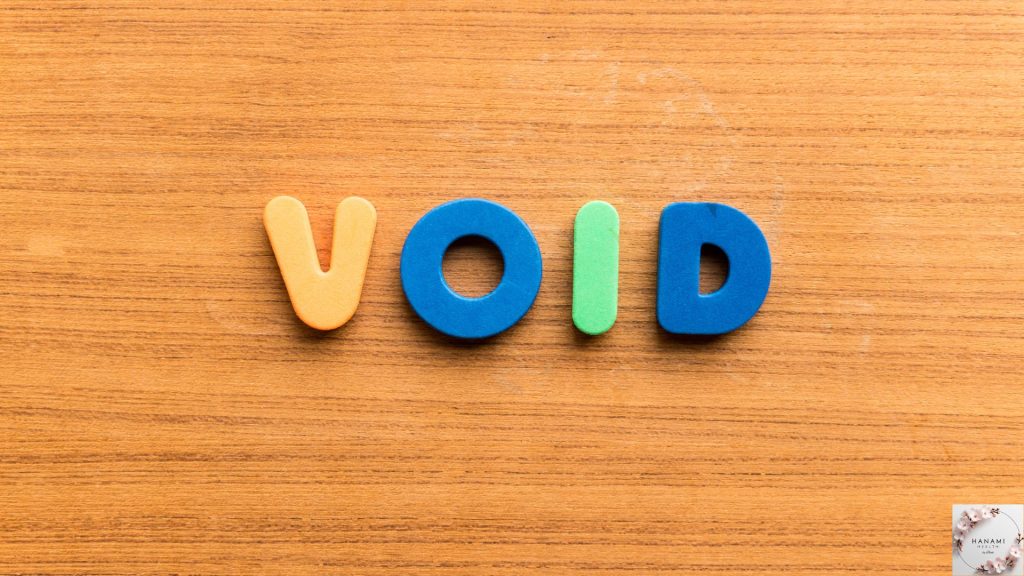
For many months, I simply observed my cues. I used to shop because it was how everyone around me celebrated life. It provided the perfect distraction from loneliness, tedious tasks, and burnout. Receiving a package at my doorstep felt like a reward, even though I was hurting my pocket in the process.
Many times we find comfort in objects around us when we are struggling mentally, emotionally, physically, or even spiritually. I realized I had no friends or social circle. My life had basically been consumed by my work routine, draining me. I hardly had the energy to engage in physical activity, have long heartfelt conversations with family, cuddle with my cats, or practice my religion.
On weekends, when I did get time, I chose to find happiness in shopping malls and trendy stores. But it was always fleeting, and when I took that away from myself in the name of minimalism, I had another void to fill.
How I Filled the Void in My Minimalism Journey
Filling the void doesn’t come as easy as the YouTube videos may have you believe. It is a constant struggle uphill. It’s easy to fall back into your old patterns. The itch to purchase will remain much longer than you would expect. I jumped from clothing to food to books. I was trying to sneak in “legitimate opportunities” to buy. Here is how I filled the void:
Overcoming Temptations
Whenever I heard something like, “A beautiful girl owns certain things, a successful girl dresses a certain way,” or accidently watched a reel on Instagram showing what an empowered woman looked like, I labeled these triggers as “unnecessary temptations or a maximalist thought.”
Identifying Myself as a Minimalist
The phrase “I am a minimalist” became my mantra. Even though I was, and still am, far from being a true minimalist, I gave myself this identity to relate to, so I could become the person I wish to be. Each time I overcame my need to buy something for pure enjoyment, I gained evidence to support and sustain my identity as a minimalist.
I found this method of Identity-Based Habits in the book Atomic Habits.The author discusses that repeating habits or actions that match the type of person you wish to become can help overcome challenges.
“The ultimate form of intrinsic motivation is when a habit becomes part of your identity.”
James Clear (the author of Atomic Habits)
Adopting New Hobbies
When I tracked my finances to better understand my buying habits, I came to know that the biggest chunk of my paycheck went on clothes and eating out. During the decluttering process, I found fabrics in different prints, textures, and colors lying idle in my wardrobe. I had purchased more because I never really had a clear view of everything I owned. I didn’t throw them out because I decided to learn how to stitch them myself. This gave me the joy of appreciating the beautiful clothes I already owned, made me feel like I had acquired something new, and helped me develop a hobby that kept my focus away from searching online stores.
Additionally, I finally started to put the convection oven in our kitchen to use. For a couple of months, I limited my screen time to only watching cooking/baking and stitching videos on YouTube. This filled the void significantly. Moreover, these hobbies helped reduce stress, gave me a sense of control, and allowed me to reconnect my creative side.
Why Family Support is Crucial
I am blessed with a supportive family. When I asked them to hold me accountable whenever I indulged in an impulsive purchase, they were more than willing to help me achieve my goals. Since minimalism is a habit or a lifestyle, you need to practice it everyday. Sometimes, you are highly motivated and present, easily avoiding temptation. Other times, you need a system to hold you accountable and keep you on track.
As for the void, spending quality time, going for walks together, and chatting during evening tea, filled it completely.
How Minimalism & Islam Align – Finding Spirituality
In addition to emotional, mental, and physical needs, we also have spiritual needs. Some people connect with their spirituality through meditation, gratitude journaling, breathing exercises, mantras, yoga, and silent retreats.
Being a Muslima, I connect with my spirituality through my religion, Islam. Listening and reading to the Holy Quran and praying has helped me fill the void that material world always fails to do. I can’t help but feel that I got drawn to minimalism because this concept is also deeply rooted in Islamic teachings, encouraging simplicity, mindfulness, self-reflection, accountability, and moderation. The more I gravitated back to Islam through minimalism, the easier it became to practice both.
Dealing with Societal Pressure
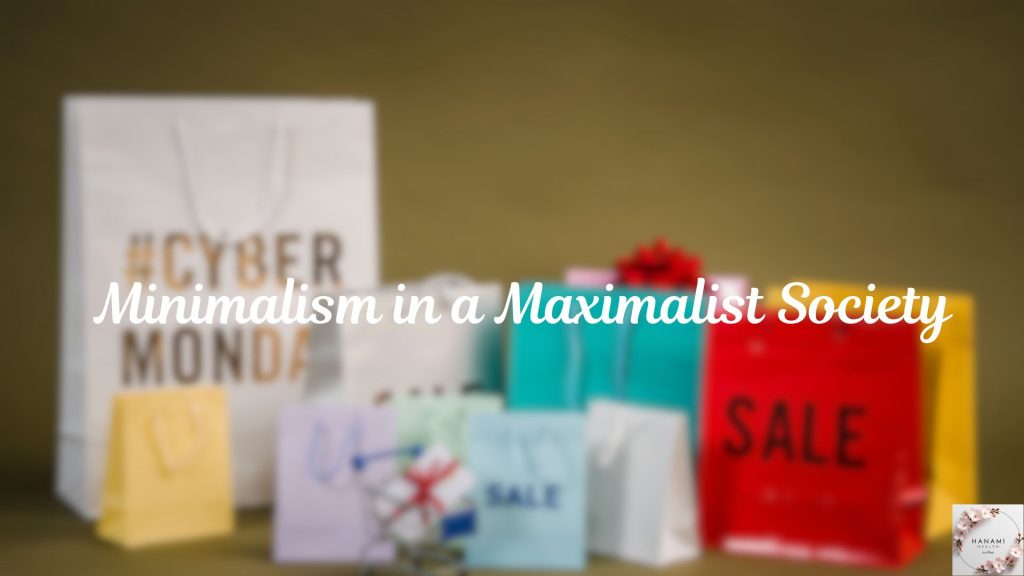
In today’s world, there is a lot of pressure to flaunt material success, which makes it challenging to stay committed to minimalism. Modern society lives paycheck to paycheck unapologetically and expects you to do the same. Your friends, colleagues, relatives, and just about everyone you come into contact with will disapprove of your choices. There is a huge difference between choosing to live a minimalist life after acquiring worldly success and choosing to live below your means while still figuring it all out.
If you don’t already have a fancy degree, a lucrative six-figure corporate job, a lavish house, the latest model car, and are identifying as a minimalist, then people will assume that you are living this way out of compulsion and not out of choice. The other category, those who have it all and trade it for a simpler life, usually have it much easier.
If society’s approval is important to you, you may want to afford the basic necessities and sometimes fancy things for yourself before fully committing to minimalism. You might first want to fall for the capitalism trap before choosing to say no to advertisements, clearance sales, and promotions.
Is Minimalism a Luxury or a Necessity?
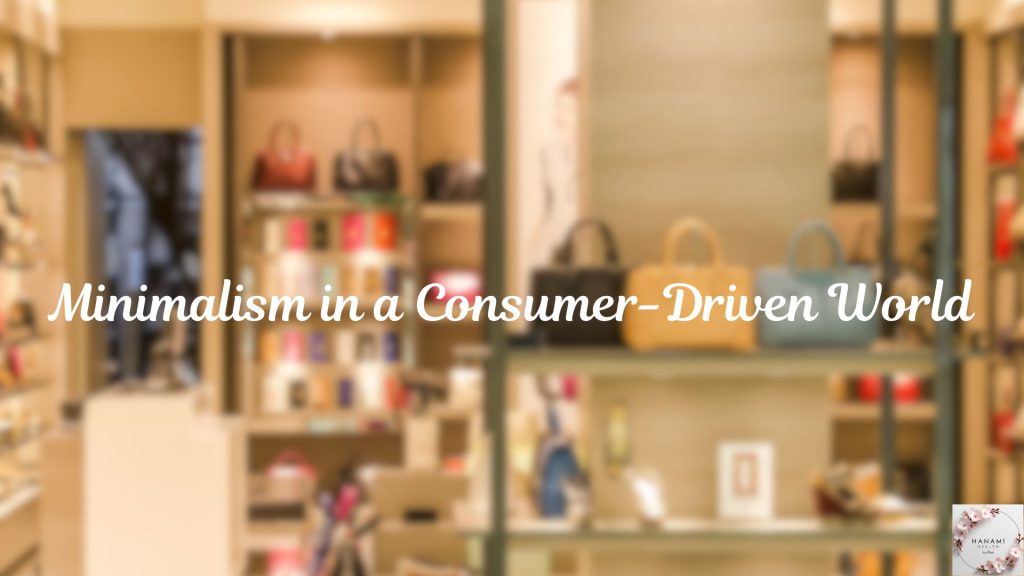
The above observation often makes me question whether minimalism is a luxury, necessity, or dare I say, a curse. Those who cannot afford to splurge on “nice” things have tasted the ugly side of minimalism and might call it a curse.
When an average person like me, introduces myself as a minimalist, repeats outfits, and calls designer items pointless, I am looked down upon as unambitious, poor, or bitter. You know how they say, “grapes are sour for those who have never experienced the luxuries of life.” I will be labeled a minimalist out of necessity. Even if it may not be the case, people will still tightly hold on to this perception because it suits their narrative.
Finally, we have wealthy people who choose a minimalist lifestyle during their retirement. They are allowed to be minimalists because they first acquired “success,” but are now no longer finding joy in frivolous spending and want to dedicate time to their passions, hobbies, and adventures. In their case, minimalism is a luxury — a classy, fashionable thing to do.
If only we could redefine the true luxuries of life as more time for ourselves and families, enjoying home-cooked nutritious meals, talking walks in the sun, people-watching for hours, re-reading favorite books without the need to put them down, having enough to sustain ourselves, doing what we love for work so we never have to retire and worry about income. If these were the luxuries of life, I believe many people would not feel miserable. They won’t have to feel the pressure to do more than their energy and capacities allow, and the less fortunate wouldn’t feel so overwhelmingly deprived.
The Truth About the Minimalism Culture
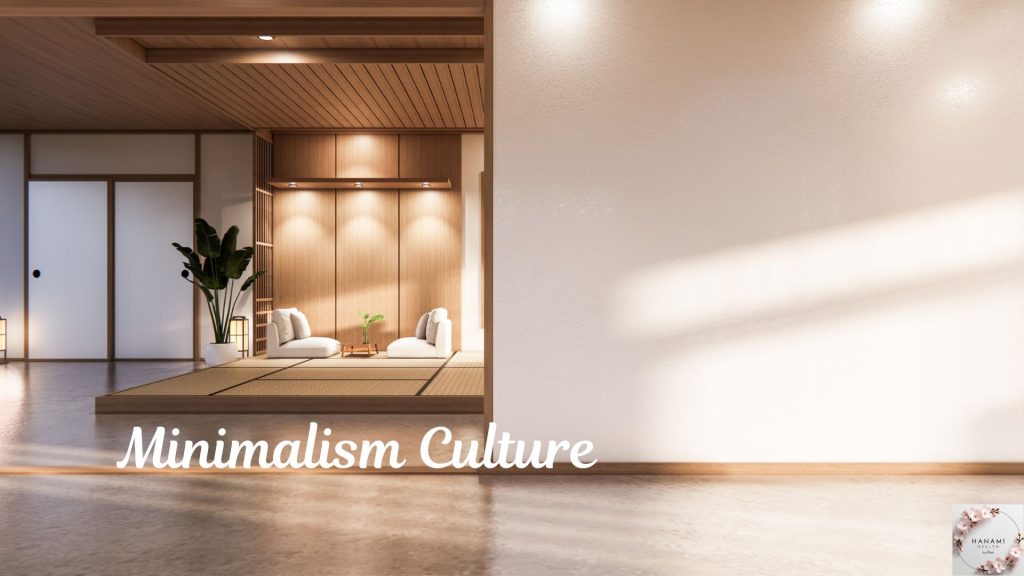
The minimalism campaign is a much-needed reaction to the hyper-consumerism we are subjected to every day. However, the face of minimalism shown on social media is masked and does not tell the full story. In fact, minimalism has just become another aesthetic business idea. Just like it happened to me in the beginning, many people are drawn to the “way minimalism looks.” the soft curtains, the rattan planters, the warm-glow lamps, lots of plants, organizers, and candles, beautiful journals, ceramic coffee mugs. You get the idea. It’s as if the minimalist lifestyle is now being marketed to us.
You will find influencers pushing books, organizers, sustainable clothing, guided journals, masterclasses, and other “useful resources” towards you, promising to help solve problems that will naturally fade away once we stop shopping and give away the excess in charity. They will make you believe that you need to buy your way into minimalism, which just defeats the entire purpose of minimalism.
Don’t get me wrong. Minimalism has immense benefits and many influencers do become the tools to help us find it; however, monetizing the campaign makes it insincere, and in some ways, worse than capitalism.
Final Thoughts
Minimalism is a beautiful concept, and it appears even more beautiful on our devices. However, it comes with its own unique challenges. It can feel boring, drab, and dull. You may become restless, feel sad for no reason, and develop a fear of missing out. But if you want to know whether minimalism works, the answer is yes — provided you stay committed to it.
It is also important to not set your expectations based on what you see on social media. Your life will look, feel, and sound different than your favorite influencer’s. But the good news is that in the long run, minimalism will help you achieve your goals. You will find more peace, contentment, intrinsic motivation, and happiness. It will also help improve your financial situation. However, these benefits won’t automatically appear as an immediate or a direct consequence of calling yourself a minimalist one day. The happiness and contentment we all seek usually comes through practicing the values minimalism advocates.